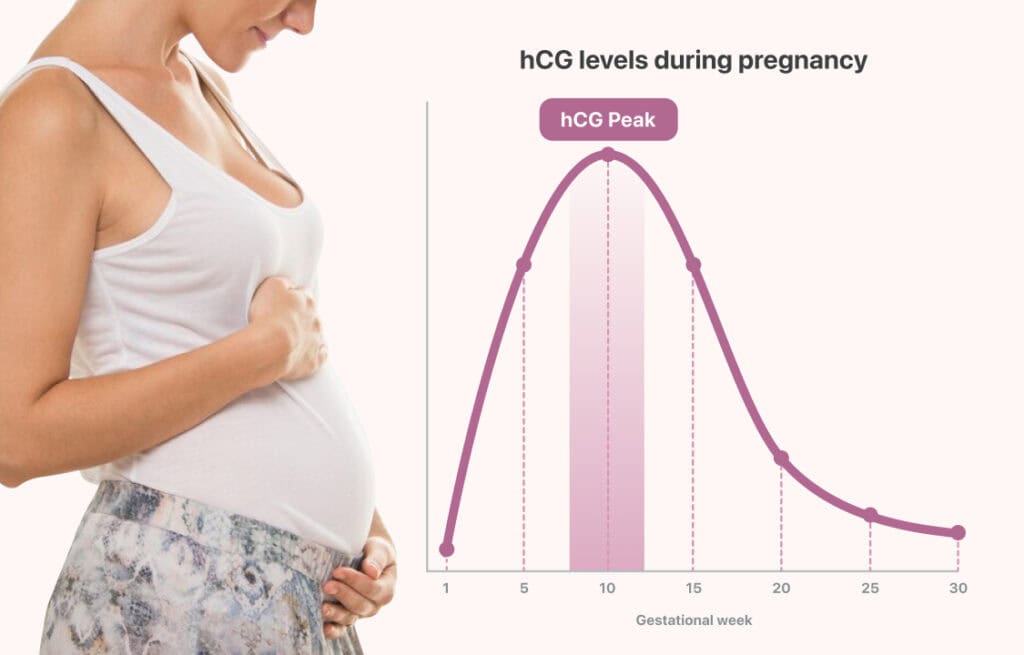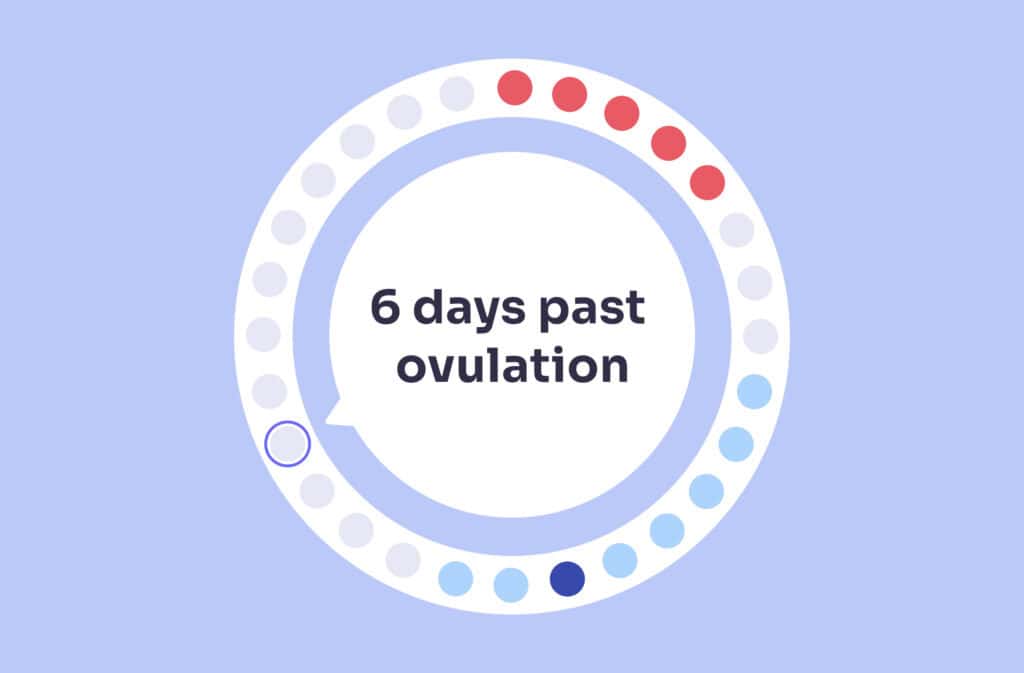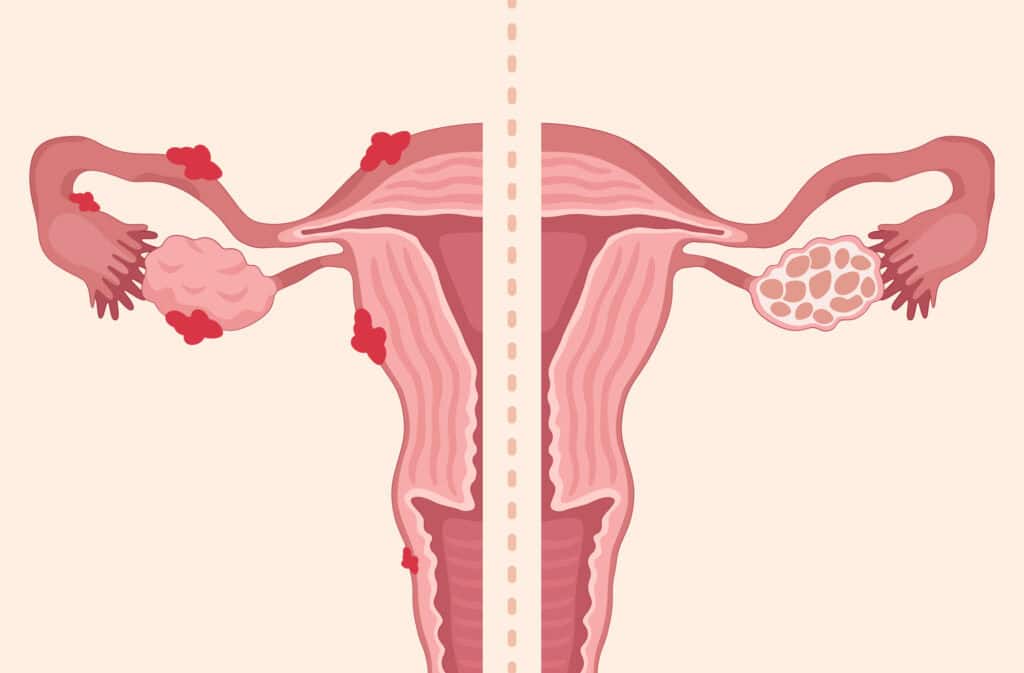Femia > Health Library > Pregnancy > Pregnancy health > Danger signs of pregnancy in the second trimester: What to watch for and when to call your doctor
Danger signs of pregnancy in the second trimester: What to watch for and when to call your doctor

- Updated Feb 11, 2025
- Published
CRAFTED BY HUMAN
Crafted by human At Femia, we provide accurate and up-to-date information at every stage of your journey, from trying to conceive, pregnancy and postnatal support. All content is created by a real person based on in-depth research and own professional experience. Femia ensures that you will receive expert advice, strict accuracy and a personalized approach from our authors/medical experts. Learn more about our editorial policy.
FACT CHECKED
Fact checked At Femia Health, we maintain the highest standards of editorial excellence in delivering content focused on helping you conceive, guiding you through pregnancy, and supporting you postpartum. Explore our content review principles to learn how we ensure the accuracy and quality of our health and lifestyle tips for every stage of your journey.
Heavy bleeding, sudden headaches, fever, blurry vision or a decrease in fetal movements are among the danger signs in pregnancy. If you encounter any of these symptoms, consider checking in with your doctor as soon as possible.
You will encounter many changes in your second trimester of pregnancy. During your regular prenatal visits, your doctor will assess your progress, letting you know what the normal and abnormal pregnancy symptoms are.
Your first-trimester symptoms start to resolve as you move into your second trimester, making it the “honeymoon phase” of your pregnancy. You might also regain some of your energy, allowing you to get back to activities that morning sickness might have kept you away from. However, your second trimester might bring in some new pregnancy symptoms such as nasal congestion, mild swelling, leg cramps, and lingering lower back pain. Most of these are manageable and result from the pressure of your growing baby bump, and pregnancy hormones.
Warning signs of pregnancy problems are frequently more alarming and we will shortly go through how you can identify them in this article. When these abnormal pregnancy symptoms appear, you are advised to seek immediate medical attention.
Our pregnancy symptoms tracking app helps you log
and monitor unusual changes
What is the second trimester and what changes can you expect?
Your second trimester starts from week 13 and is completed by week 27 of your pregnancy. In this trimester you’ll experience significant relief from symptoms such as morning sickness and breast tenderness and have more energy for the activities you used to enjoy.
A few early pregnancy symptoms may persist or heighten in your second trimester. Some of these include:
- Heartburn which increases as your growing baby bump pushes your stomach to the side.
- Frequent bathroom breaks as the pressure on your bladder will also increase as your bump grows.
- Nasal congestion from the increased mucus production due to increased circulating blood flow.
- Mild swelling in your feet also from the increased circulating blood flow
- Constipation from bowel relaxation from progesterone’s influence
For the most part, your second trimester will be the best of the three. You’ll have regained energy for work, you might be sleeping better, and you might also see a significant improvement in your sex life. You should continue with your prenatal visits, during which you can discuss any abnormal pregnancy symptoms you experience.
👉Find out more: PUPPP rash: Causes, symptoms, and how to manage pregnancy’s itchy rash
Danger signs of pregnancy in the second trimester
While you can expect your body to continue experiencing changes throughout your pregnancy a few symptoms work as warning signs of pregnancy problems that require immediate medical attention.
- Severe abdominal pain and cramping: Abdominal pain and cramping can be a danger sign in pregnancy, signaling placental insufficiencies, preterm labor, or uterine rupture. Often the pain is sharp, sudden in onset, and radiates to other parts of your body. Some non-obstetric causes of sudden abdominal pain can include appendicitis, ovarian cysts, and having a fatty liver.
- Heavy vaginal bleeding: Vaginal bleeding is observed in about 25% of pregnancies. Half of these cases can progress to a miscarriage. While miscarriage is less likely in the second trimester, heavy vaginal bleeding is an ominous sign in any stage of pregnancy. Other causes of bleeding can include placental abruption, placenta previa, or uterine rupture.
- Persistent headaches or vision changes: Headaches during pregnancy can be related to hormonal changes and increased blood flow. As a consequence, you can experience tension headaches or even migraines. These headaches subside on their own with some rest. However, having a headache coupled with vision changes might be a warning sign of pregnancy hypertension or more severe pre-eclampsia, which is hypertension along with signs of organ damage such as protein in urine, headaches, and swelling.
- Severe swelling of hands, feet, or face: The increase in circulating blood flow accounts for 80% of pregnancies noticing some swelling, especially in the feet. However, if you notice swelling that is persistent, excessive, and in other parts of your body such as your face, fingers, and abdomen, it could be another warning sign of pregnancy pre-eclampsia.
- Sudden weight gain: Routinely using a pregnancy weight gain calculator allows you to estimate how much weight gain is normal for you during each week. Beyond what’s measured, a pound of weight lost or gained is often no cause for concern. However, if you have significant weight gain in a short time, edema is often a primary cause. Diabetes or other metabolic conditions, which can result in significant weight gain, should also be ruled out.
- Decrease or absence of fetal movements: You will start feeling your baby’s movements by 18 weeks. Earlier, if this isn’t your first pregnancy. Since your baby is growing, the strength of these movements often increases as the weeks progress. On any given day, if you feel that your baby’s movements have decreased compared to the norm, check in with your doctor for other warning signs of pregnancy fetal distress.
- High fever and chills: Fever is an indicator of infection. Mild fevers often subside on their own, with a little help from pregnancy-safe medication recommended by a doctor. A sustained fever above 38°C warrants checking, especially if you have other warning signs such as chills or a rash.
- Leakage of mucus and fluid from the vagina: Preterm premature rupture of membranes, is when your “water breaks” before 37 weeks of pregnancy. It is estimated to occur in about 3% of pregnancies, often signaling preterm birth. It is normal to experience some discharge during your pregnancy. However, a sudden gush of clear fluid, sometimes coupled with cramping during the second trimester can be a warning sign for preterm labor.
Abnormal pregnancy symptoms to monitor
Warning signs of pregnancy issues are often distinct enough for you to recognize when something is wrong. However, sometimes you might have trouble distinguishing between normal and abnormal pregnancy symptoms.
- With your growing baby bump, you slowly notice an aching back pain coming in at the end of your day. It may radiate to your lower pelvis and thighs. This general ache is normal during pregnancy. However, a sudden almost overnight pain or pressure anywhere around your back and lower pelvis is an abnormal pregnancy symptom. If it escalates, talk to your doctor.
- Vaginal discharge is normal throughout pregnancy. It may also increase, owing to the increased blood flow to your uterus, cervix, and vagina. Normal vaginal discharge is white or whitish-yellow with a faint odor. Pungent or fishy odored discharge is an abnormal pregnancy symptom. Especially if coupled with greenish, gray, or bloody discharge.
- In your second trimester, your nausea should have eased up. You may still have the occasional day where you throw up. If you continue having significant bouts of morning sickness, with repeated vomiting, known as hyperemesis gravidarum, be sure to check in with your physician for signs of possible dehydration.
Period cramps during pregnancy second trimester: When to worry
As your baby bump grows it brings with it new aches and discomforts. You might experience cramping during your second trimester. These cramps may be similar in sensation to period cramps. The strain on your round ligament, the support system of your uterus, is responsible for this pain.
The pregnancy hormone progesterone relaxes your round ligament. This adds further strain resulting in pain in your lower back and pelvis, radiating to your thighs. It can be reassuring to know that this slight pregnancy discomfort is completely normal and most pregnant women in your circle will have noticed varying degrees of it. You can take care of your round ligament pain during pregnancy with lower belly support, regular rest, and a warm bath.
Cramping that is sudden, sharp, and accompanied by other warning signs of pregnancy issues – symptoms like bleeding, fever, swelling, or chills – should prompt you to seek immediate medical assistance.
Our pregnancy symptoms tracking app helps you log
and monitor unusual changes
Signs your pregnancy is going well in the second trimester
While we have seen all the warning signs of pregnancy issues, chances are your pregnancy is going to progress smoothly. If you follow a nutritious diet, visit your obstetrician regularly, stay active, and complete all your second-trimester tests, you should have a healthy second trimester.
A few reassuring things about your second trimester include:
- You regain energy while in your second trimester
- Can participate in most activities
- Regularly notice your baby’s movements throughout the day
- Chart healthy weight gain
- Don’t have outside-the-norm pain or discomfort
- Do have manageable bowel movements
- You get good results during your prenatal check-ups and tests
👉Find out more: Pregnancy hemorrhoids: Causes, prevention, and how to get relief
Signs something is wrong with your baby while pregnant
Without a doctor’s check, it will be exceedingly difficult to determine if something is wrong with your baby while pregnant. However, some abnormal pregnancy symptoms can indicate fetal distress. These include:
- Decrease in your baby’s movements
- Sudden cramping and back pain
- Heavy bleeding
- Decrease in your baby bump
- Pressure on your lower pelvis
You may have more than one of these warning signs at a time. In most instances with prompt medical assistance, your doctor should be able to identify signs of fetal distress and take the necessary precautions for both you and your baby.
How to have a healthy second trimester of pregnancy?
While you are in the most enjoyable phase of your pregnancy, you need to adopt a few healthy practices to reduce the risk of complications during your second trimester.
- Stay hydrated, aiming for 2.5 – 3 liters of water daily. This becomes more important if you are still vomiting and your first-trimester morning sickness hasn’t subsided yet.
- Follow a nutrition guide and get all the essential nutrients required for your pregnancy. Stay away from foods that could be harmful to your baby or increase the risk of miscarriage.
- Avoid heavy lifting while pregnant. You may still be able to continue with your routine workouts throughout your pregnancy. Your doctor will advise on when it is time to cut back on more strenuous forms of exercise. That being said, sex is safe during pregnancy, unless your doctor has said otherwise.
- Practice optimal general hygiene during pregnancy. Since your immunity is lower during pregnancy, it increases your infection risk.
If you are regular with your prenatal visits, your doctor can update you on how your pregnancy progresses. Early warning signs of pregnancy issues such as edema, excessive weight gain, or changes in vaginal discharge can be identified during early check-ups. A doctor can help you manage any serious underlying medical causes.
When should you call your doctor?
Any questions you have during your pregnancy with no clear answer should prompt you to call your doctor. It can even be a quick reassuring chat, one not warranting a complete check-up but which can help you to calm your nerves.
Danger signs in pregnancy have been highlighted throughout this article. In each scenario, especially if you have a combination of abnormal symptoms, you should seek emergency medical care. Prompt treatment helps lower fatal pregnancy outcomes significantly.
Any warning signs of pregnancy you are unsure of should also warrant a personal check-in with your doctor. You may require personalized care to mitigate risks affecting how your pregnancy progresses.
Questions from the Femia community
What should I do if I notice my baby’s movements have decreased?
If your baby’s movements have decreased, it is advisable to contact your healthcare provider at the earliest possibility.
How can I prevent complications in the second trimester?
Following up with your routine prenatal visits, having a balanced diet, getting adequate sleep, and moving regularly help to reduce your risk of complications.
However, it is not always possible to prevent all complications. If you notice any warning signs of pregnancy problems consider checking in with your healthcare provider.
How will infections during pregnancy affect my baby?
Infections can result in a variety of complications during pregnancy. Some infections can disrupt fetal development, cause malformations, result in preterm labor, or lead to a miscarriage. Infections can also pose risks to mothers, which is in turn harmful to your baby. If you suspect you have an infection, consult with your healthcare provider as soon as possible.
I have mild swelling. Should I be concerned?
Mild swelling is normal and present in all pregnancies. It is the result of the increased circulating blood volume during your pregnancy. However, if you notice significantly increased swelling, and swelling all over your body such as your face, hands, and abdomen, consider talking to your doctor about these changes.
The bottom line
Following the right health guidelines for your second trimester along with routine prenatal visits with your obstetrician, lowers your risk of complications during your pregnancy.
Staying proactive about your general health, through nutrition, regular movement, stress reduction, and adequate sleep can usually take care of most discomforts during your second trimester.
Awareness of the danger signs of pregnancy in the second trimester should prompt you to reach out for medical assistance. Since each pregnancy is unique, individualized care is used to treat any abnormal pregnancy symptoms you might have, ensuring a safe and healthy pregnancy for you and your baby.
References
- Pinas-Carrillo, Ana, and Edwin Chandraharan. “Abdominal Pain in Pregnancy: A Rational Approach to Management.” Obstetrics Gynaecology & Reproductive Medicine, vol. 27, no. 4, Feb. 2017, pp. 112–19. https://doi.org/10.1016/j.ogrm.2017.01.009.
- Sharami, Seyedeh Hajar, et al. The Relationship Between Vaginal Bleeding in the First and Second Trimester of Pregnancy and Preterm Labor. 1 May 2013, pmc.ncbi.nlm.nih.gov/articles/PMC3941415.
- Davison, J M. “Edema in pregnancy.” Kidney international. Supplement vol. 59 (1997): S90-6. pubmed.ncbi.nlm.nih.gov/9185112.
- Gouez, Agnès Le, et al. “Fever and Pregnancy.” Anaesthesia Critical Care & Pain Medicine, vol. 35, July 2016, pp. S5–12. https://doi.org/10.1016/j.accpm.2016.06.007.
- Pisoh, Dobgima Walter, et al. “Prevalence, Risk Factors and Outcome of Preterm Premature Rupture of Membranes at the Bamenda Regional Hospital.” Open Journal of Obstetrics and Gynecology, vol. 11, no. 03, Jan. 2021, pp. 233–51. https://doi.org/10.4236/ojog.2021.113023.
- Jennings, Lindsey K., and Heba Mahdy. “Hyperemesis Gravidarum.” StatPearls – NCBI Bookshelf, 31 July 2023, www.ncbi.nlm.nih.gov/books/NBK532917.

Explore this in-depth guide about the role of hCG in pregnancy, hCG levels by week, symptoms of rising hCG levels, and when to consult a doctor for an abnormality.

Learn about common symptoms at 6 days past ovulation (6 DPO), potential early pregnancy signs, and the importance of timing for pregnancy tests. Expert advice from Femia.

What’s the difference between PCOS and endometriosis? Find an all-rounded guide to understand these two conditions, their symptoms, and how they differ.

